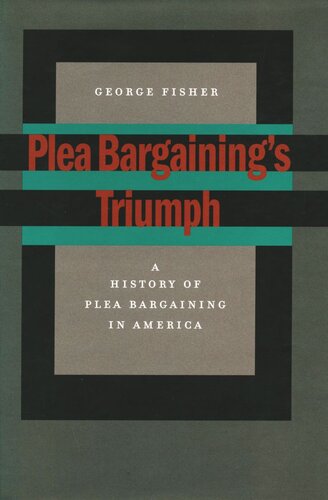

Most ebook files are in PDF format, so you can easily read them using various software such as Foxit Reader or directly on the Google Chrome browser.
Some ebook files are released by publishers in other formats such as .awz, .mobi, .epub, .fb2, etc. You may need to install specific software to read these formats on mobile/PC, such as Calibre.
Please read the tutorial at this link: https://ebookbell.com/faq
We offer FREE conversion to the popular formats you request; however, this may take some time. Therefore, right after payment, please email us, and we will try to provide the service as quickly as possible.
For some exceptional file formats or broken links (if any), please refrain from opening any disputes. Instead, email us first, and we will try to assist within a maximum of 6 hours.
EbookBell Team

0.0
0 reviewsThough originally an interloper in a system of justice mediated by courtroom battles, plea bargaining now dominates American criminal justice. This book traces the evolution of plea bargaining from its beginnings in the early nineteenth century to its present pervasive role. Through the first three quarters of the nineteenth century, judges showed far less enthusiasm for plea bargaining than did prosecutors. After all, plea bargaining did not assure judges “victory”; judges did not suffer under the workload that prosecutors faced; and judges had principled objections to dickering for justice and to sharing sentencing authority with prosecutors. The revolution in tort law, however, brought on a flood of complex civil cases, which persuaded judges of the wisdom of efficient settlement of criminal cases. Having secured the patronage of both prosecutors and judges, plea bargaining quickly grew to be the dominant institution of American criminal procedure. Indeed, it is difficult to name a single innovation in criminal procedure during the last 150 years that has been incompatible with plea bargaining’s progress and survived.